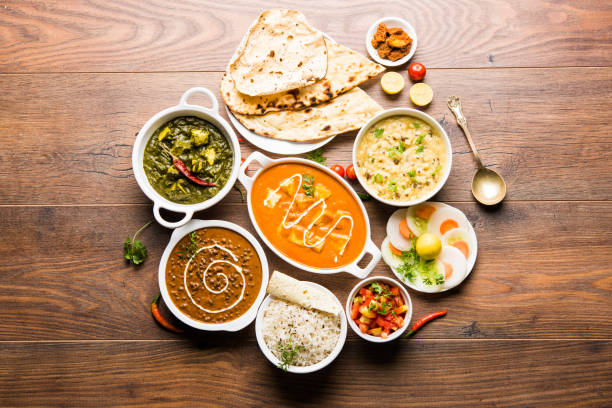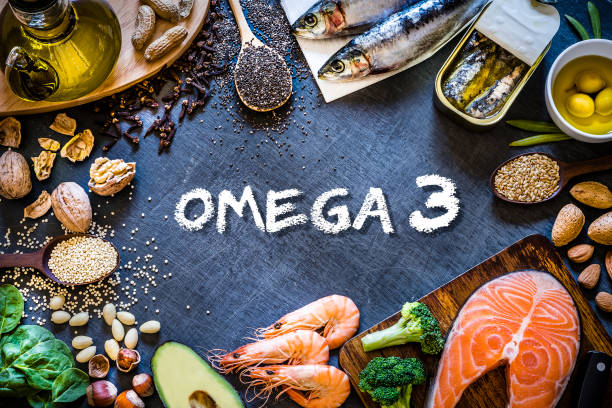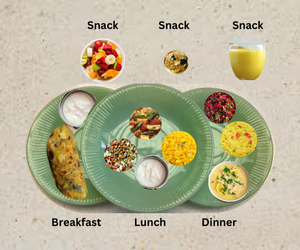1. Calorie-Dense, Nutrient-Rich Foods to Combat Fatigue and Muscle Loss
Cancer treatments increase the body’s energy demands while often reducing appetite, leading to muscle wasting and fatigue. Consuming calorie-dense, nutrient-rich foods helps meet these energy needs without the need for large food portions. Foods like nuts, seeds, avocados, olive oil, and dried fruits are packed with essential nutrients and healthy fats, offering concentrated energy to support muscle function and overall well-being (Schueren et al., 2018; Muscaritoli et al., 2017). The NCCN and American Cancer Society emphasize the inclusion of these foods to maintain energy levels and nutritional health.
Key Benefits:
- Increases energy levels.
- Supports muscle mass and strength.
- Enhances nutrient absorption and recovery.




2. High-Protein Foods for Preserving Muscle Strength
Protein is essential for maintaining muscle mass, which is often compromised during cancer treatment. Adequate protein intake supports muscle repair, energy production, and reduces fatigue. Lean meats, fish, legumes, tofu, and dairy products are excellent sources of protein that help preserve muscle mass and enhance physical strength (Moulton et al., 2010; Karakus, 2023). Studies have demonstrated that higher protein intake improves muscle function and reduces fatigue in cancer patients (Liao et al., 2017; Sajjapong et al., 2021).Whey protein isolate (WPI) and essential amino acids play a critical role in muscle repair and maintaining physical function (Cereda et al., 2019; Schink et al., 2018). Adequate protein intake helps reduce treatment-related fatigue and improves overall energy levels.
Key Benefits:
- Maintains muscle mass and function.
- Reduces fatigue and improves energy levels.
- Supports recovery and better treatment tolerance.
3. Healthy Fats for Sustained Energy & Reduced Inflammation
Healthy fats, especially omega-3 fatty acids found in fatty fish, flaxseeds, and walnuts, provide a steady source of energy while reducing inflammation, a common side effect of cancer treatment (Repka & Hayward, 2018; Haß et al., 2022). These fats support cellular function, maintain body weight, and enhance energy levels, helping to combat fatigue and reduce treatment-related side effects (Schueren et al., 2018).
Key Benefits:
- Provides long-lasting energy.
- Reduces inflammation.
- Supports overall recovery and well-being.


4. Complex Carbohydrates for Steady Energy Levels
Complex carbohydrates such as whole grains, sweet potatoes, and legumes release energy steadily and help stabilize blood sugar levels, reducing energy crashes and fatigue (Schueren et al., 2018; Muscaritoli et al., 2017). Fruits and vegetables further enhance nutrient intake, supporting overall well-being by providing essential vitamins and fiber. Balanced consumption of complex carbohydrates has been shown to improve energy levels and quality of life for cancer patients (Zick et al., 2012; Zick et al., 2016).
Key Benefits:
- Stabilizes energy levels.
- Reduces fatigue.
- Enhances overall well-being.
5. Antioxidant-Rich Foods to Combat Oxidative Stress and Fatigue
Oxidative stress and inflammation are heightened during cancer treatment, contributing to fatigue and weakened physical function. Antioxidant-rich foods like berries, dark leafy greens, and colorful vegetables help reduce oxidative stress and improve energy levels (Repka & Hayward, 2018; Borek, 2017). Research has linked antioxidant-rich diets to reduced fatigue and improved quality of life for cancer survivors (Guest et al., 2012; Zick et al., 2016).
Key Benefits:
- Reduces fatigue and inflammation.
- Enhances cellular health and energy levels.
- Improves quality of life.


6. Hydration to Support Energy and Strength
Proper hydration is often overlooked but crucial for maintaining energy levels and preventing fatigue. Dehydration can exacerbate feelings of tiredness and weakness, particularly during cancer treatment. Encouraging adequate fluid intake through water, herbal teas, and hydrating foods like fruits and vegetables can help maintain energy levels and reduce fatigue (Schueren et al., 2018; Muscaritoli et al., 2017).
Key Benefits:
- Enhances energy levels.
- Improves nutrient absorption and digestion.
- Reduces fatigue.
7. Small, Frequent Meals for Nutrient Intake
Due to fatigue and reduced appetite, many cancer patients struggle to consume sufficient nutrients. Eating smaller, more frequent meals helps ensure consistent energy and nutrient intake (Schueren et al., 2018; Muscaritoli et al., 2017). This approach reduces feelings of fullness from large meals, supports better digestion, and makes it easier to meet daily nutrient needs.
Key Benefits:
- Consistent energy levels.
- Improved nutrient absorption.
- Reduced fatigue and improved well-being.

8.Personalized Nutritional Counseling and Oral Nutritional Supplements (ONS)
Personalized nutritional counseling is a cornerstone of cancer care, focusing on tailored dietary strategies that meet the unique needs of patients. Research shows that Oral Nutritional Supplements (ONS) can significantly improve calorie and protein intake, particularly for patients struggling with nausea, appetite loss, and fatigue (Kenny et al., 2020; Richards et al., 2020). These supplements help combat muscle wasting and enhance energy levels, enabling patients to tolerate treatment better and recover more effectively.
Key Benefits:
- Enhanced Calorie and Protein Intake: Helps maintain muscle mass and supports energy production.
- Reduction in Fatigue and Muscle Weakness: Leads to improved treatment tolerance.
- Better Recovery Outcomes: Supports overall patient well-being during cancer therapy.
9.Physical Activity and Exercise Interventions
Exercise, including aerobic and resistance training, has been shown to enhance muscle strength and reduce fatigue in cancer patients (Stene et al., 2013; Lakenman et al., 2017). Strength training is particularly beneficial in preserving muscle mass for patients undergoing chemotherapy.
Key Benefits:
- Increased Muscle Mass and Physical Function: Improves strength and reduces weakness.
- Reduction in Fatigue: Alleviates the physical impact of treatment.
- Improved Quality of Life: Enhances well-being during recovery.


10. Technology-Enhanced Nutritional and Exercise Interventions
Mobile applications and online platforms have emerged as effective tools to support cancer patients in tracking their nutrition and physical activity. Research shows that technology-enhanced interventions improve adherence to dietary and exercise regimens, leading to better energy levels, muscle strength, and reduced fatigue (Kiss et al., 2018; Danhauer et al., 2017).
Key Benefits:
- Enhanced Engagement and Adherence: Promotes consistent nutrition and exercise routines.
- Better Nutritional Intake and Physical Function: Supports recovery and improves quality of life.
- Improved Energy Levels and Muscle Strength: Reduces treatment fatigue.
The Bonne Sante Approach to Nutritional Interventions for Cancer Care
At Bonne Sante, we understand that cancer treatment often presents unique nutritional challenges—fatigue, muscle loss, and decreased energy levels—that can significantly impact patients’ quality of life. Our approach focuses on evidence-based, personalized dietary strategies designed to support cancer patients by boosting energy and preserving physical strength during therapy.
Why Choose Bonne Sante for Your Cancer Support?
Science-Driven Approach
Our nutritional strategies are rooted in the latest research and guided by scientific evidence. At Bonne Sante, we use advanced assessments to understand your specific nutritional needs, ensuring that every plan is tailored to your goals and treatment journey. By combining cutting-edge research with personalized care, we help optimize outcomes and improve energy levels, physical resilience, and overall well-being.
Holistic Wellness Solutions
We don’t just focus on diet—we consider the whole picture. At Bonne Sante, we address lifestyle factors like hydration, physical activity, stress management, and sleep to ensure a comprehensive approach to nutritional health. Our holistic methods aim to improve energy levels while reducing treatment side effects and enhancing recovery.
Expert Guidance
Our team of registered dietitians and health professionals provides one-on-one support. We ensure that each patient receives personalized guidance and adjustments, empowering them to make informed decisions throughout their cancer care journey.
Customized Plans
We understand that each cancer patient is unique. At Bonne Sante, your nutritional plan is customized based on your health history, preferences, and treatment goals, ensuring that your specific needs are met with tailored solutions.
Frequently Asked Questions
1. How can Bonne Sante help boost energy and strength during cancer treatment? At Bonne Sante, we offer personalized nutrition plans designed to combat fatigue, muscle loss, and low energy levels. Our evidence-based strategies include incorporating nutrient-dense foods, protein supplementation, hydration, and small, frequent meals to enhance energy and strength. Our holistic approach also ensures that physical activity, sleep, and stress management are addressed, further supporting patients’ well-being.
2. Are nutritional interventions safe during cancer treatment? Yes, nutritional interventions can be safe and highly beneficial when guided by a registered dietitian. At Bonne Sante, we work closely with healthcare professionals to ensure that all dietary recommendations align with your cancer treatment plan and medical needs.
3. Do I need to take supplements for increased energy and strength? While a well-balanced diet is key, supplements such as protein powders, omega-3s, and vitamins may be recommended when necessary. Our experts ensure that any supplementation aligns with your unique needs and treatment goals.
Start Your Journey with Bonne Sante Today
Empower yourself with evidence-based nutritional strategies designed to enhance energy, physical strength, and overall well-being during cancer treatment. At Bonne Sante, we are dedicated to supporting your journey to improved health and resilience.
Let us help you achieve your goals—one step at a time. Start your nutritional journey today with Bonne Sante and take control of your cancer care with confidence.
Reference
de van der Schueren, M. A. E., Laviano, A., Blanchard, H., Jourdan, M., Arends, J., & Baracos, V. E. (2018). Systematic review and meta-analysis of the evidence for oral nutritional intervention on nutritional and clinical outcomes during chemo(radio)therapy: current evidence and guidance for design of future trials. Annals of Oncology, 29(5), 1141–1153. https://www.annalsofoncology.org/article/S0923-7534(19)34566-1/fulltext
Guest, D. D., Evans, E. M., & Rogers, L. Q. (2012). Diet components associated with perceived fatigue in breast cancer survivors. European Journal of Cancer Care, 21(3), 313–323. https://doi.org/10.1111/j.1365-2354.2012.01368.x
Haß, U., Kochlik, B., Herpich, C., Rudloff, S., & Norman, K. (2022). Effects of an omega-3 supplemented, high-protein diet in combination with vibration and resistance exercise on muscle power and inflammation in old adults: A pilot randomized controlled trial. Nutrients, 14(20), 4274. https://doi.org/10.3390/nu14204274
Karakus, Z. N., Altinkaynak, M., Akpinar, T. S., Erten, S. N., Vatansever, S., & Saka, B. (2023). Comparison of per kilogram and nitrogen balance calculations for the prediction of daily protein requirement in cancer patients: A prospective randomized controlled study. Research Square. https://doi.org/10.21203/rs.3.rs-3629139/v1
Kenny, E., Touger-Decker, R., & August, D. A. (2020). Structured review of the value added by the registered dietitian to the care of gastrointestinal cancer patients. Nutrition in Clinical Practice, 35(5), 776–785. https://doi.org/10.1002/ncp.10568
Liao, C.-D., Tsauo, J.-Y., Wu, Y.-T., Cheng, C.-P., Chen, H.-C., Huang, Y.-C., … & Liou, T.-H. (2017). Effects of protein supplementation combined with resistance exercise on body composition and physical function in older adults: A systematic review and meta-analysis. The American Journal of Clinical Nutrition, 106(4), 1078–1091. https://doi.org/10.1093/ajcn/nqx094
Moulton, C. J., Valentine, R. J., Layman, D. K., Devkota, S., Singletary, K. W., Wallig, M. A., & Donovan, S. M. (2010). A high protein moderate carbohydrate diet fed at discrete meals reduces early progression of N-methyl-N-nitrosourea-induced breast tumorigenesis in rats. Nutrition & Metabolism, 7(1), 1. https://doi.org/10.1186/1743-7075-7-1
Muscaritoli, M., Lucia, S., Farcomeni, A., Lorusso, V., Saracino, V., Barone, C., … & Marchetti, P. (2017). Prevalence of malnutrition in patients at first medical oncology visit: the PreMiO study. Oncotarget, 8, 79884–79896. https://doi.org/10.18632/oncotarget.20168
Repka, C. P., & Hayward, R. (2018). Effects of an exercise intervention on cancer-related fatigue and its relationship to markers of oxidative stress. Integrative Cancer Therapies, 18(3), 1534735418766402. https://doi.org/10.1177/1534735418766402
Sajjapong, W., Leelahagul, P., Pongphibool, S., & Thongsuk, N. (2021). Effect of resistance training exercise combined with high protein diet on body weight and muscle mass in underweight adolescent males. Malaysian Journal of Nutrition, 27(1), 41–52. https://doi.org/10.31246/mjn-2020-0039
Zick, S. M., Colacino, J., Cornellier, M., Khabir, T., Surnow, K., & Djuric, Z. (2017). Fatigue reduction diet in breast cancer survivors: A pilot randomized clinical trial. Breast Cancer Research and Treatment, 161(2), 299–310. https://doi.org/10.1007/s10549-016-4070-y
Zick, S. M., Sen, A., Han-Markey, T. L., & Harris, R. E. (2013). Examination of the association of diet and persistent cancer-related fatigue: A pilot study. Oncology Nursing Forum, 40(1), E41–E49. https://doi.org/10.1188/13.ONF.E41-E49


